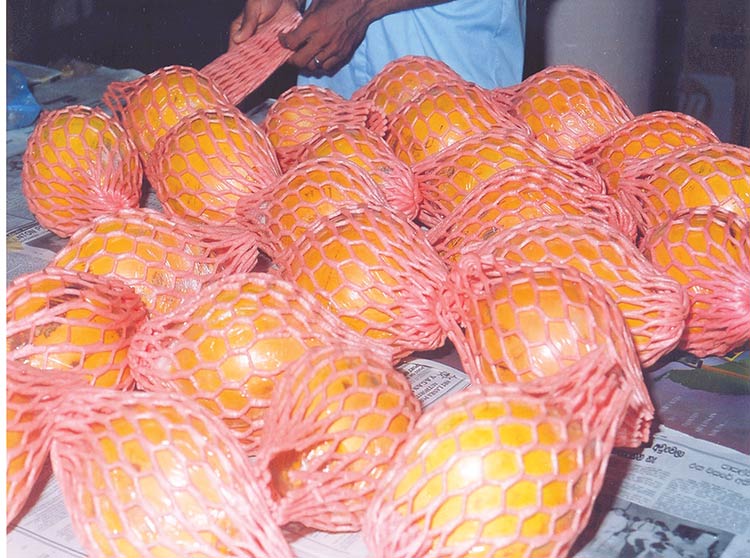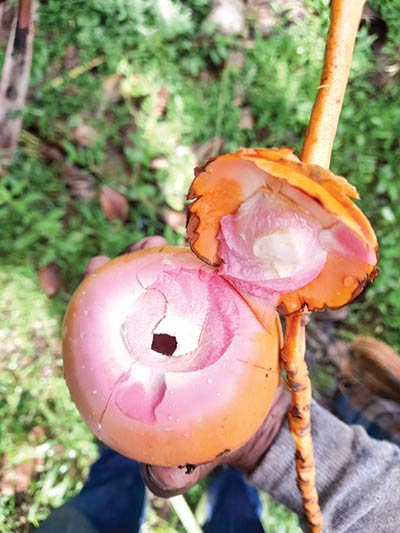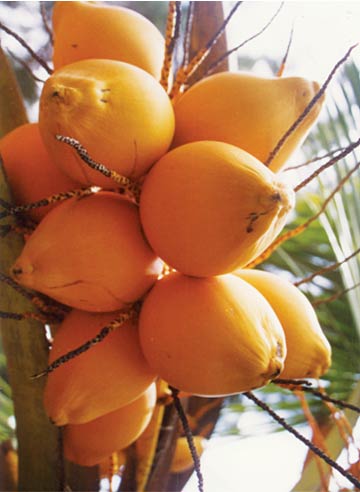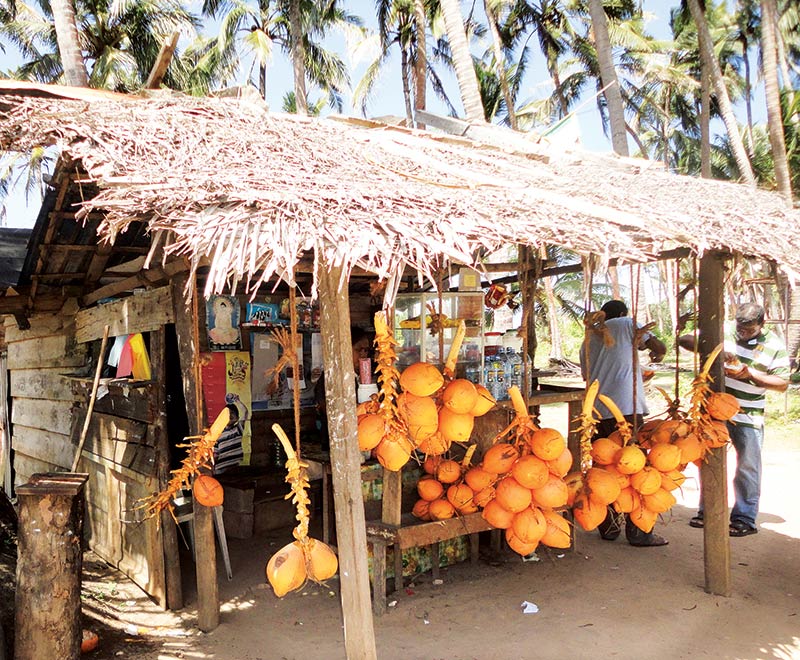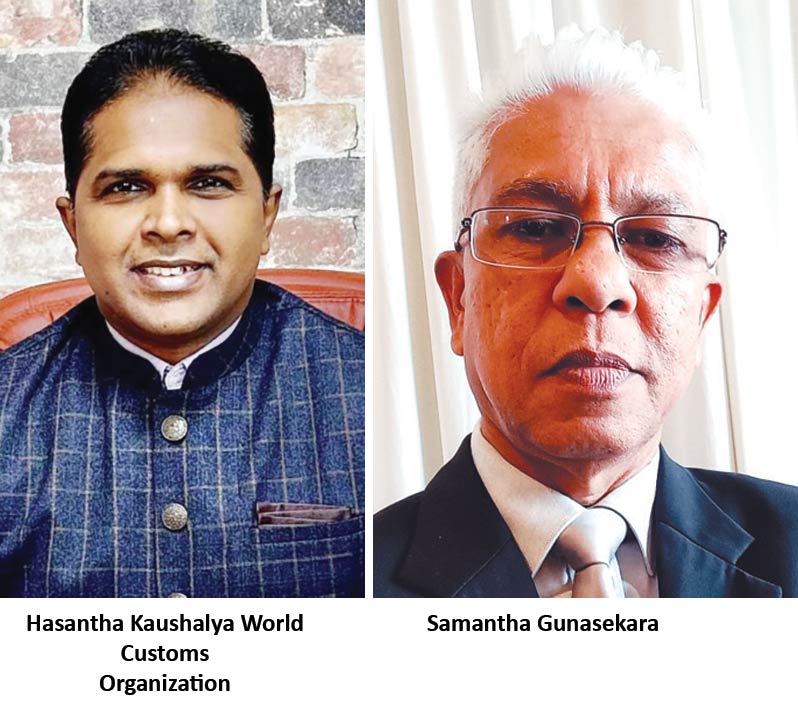Life style
Dhananjaya Bandara is one of the gifted faces in the bridal and beauty industry.

He has without any doubt captured many hearts of brides by his sheer taste and understanding of what best suits the bride.This talented youth from his early childhood showed interest in the art of bridal dressing Having a mother who was already popular in the industry, grew up with her influence and slowly but gradually developed his creative talent. Today at the height of his success he considers his mother as the guardian and mentor who supported him to create a name in the insustry.
This self taught designer soon honed his creative skills by the time he completed his school career.He said proudly with the help of Haris Wijesinghe, the popular figure in the bridal industry has climbed the ladder of success. He mentioned Ramani Fernando for the cooperation extended to him
Dhananjaya Bandara is not only a bridal dresser, he is also a designer, beautician and a fashion consultant. His forte lies on minimalistic cuts and designs and wearable fabrics.
How was the experience creating your own bridal ensembles?
For me, it’s all about the minutest of details—each outfit follows a theme that is implemented with exquisite detailing in terms of the colour palette, fabrics and embroidery.I want each bridal ensemble to have a different vibe, while staying true to my personal style.- They desire something that is heavy, while being comfortable too. Last but not the least, smaller weddings mean more personalization.
How do you want women to feel when wearing your bridals?
Bridals, for me, are an expression of one’s artistic bend and individuality. When women wear my bridals, I want them to feel beautiful, confident and wholly aware of their strengths. I want them to feel like mystical muses, gracefully balancing heritage and modern thought. Every time a woman adorns a Dhananjaya creation, she should feel rooted yet refined, elegant yet exuberant: It was truly a special experience to create my own outfits for the wedding. It was also insightful to experience first-hand the desires and emotions of a bride-to-be, and I‘m certain this will help me better gauge the requirements of brides who will entrust me with designing for their special day.
What makes Dhananjaya a timeless label?. Consistency and clarity of thought has created a brand that you see today.Don’t you think bridal dressing is an art not many can master I queried ? To this he replied Dhananjaya is one designer who was set on one track mission to raise the bar in the bridal industry .
Focussed on contemporary style and sophistication that speak volumes of his prowess and talent in creating timeless designs that are both effortless but also intimate. His bridal makeup and bridal couture is already a hit among women.
I dont use heavy make up on brides . The bride has to be simple,elegant and the focus on that special day is on the bride
What is your signature style? The first thing one needs to understand is people are not really paying you for just another product, they buy into their belief system, ideals and what you stand for. So I design a dress or a saree to be the dream of any bride to achieve her dream to be the the most beautiful that is my only aim. Knowing that I have realised this vision of the bride and contributed to her love story its the ultimate aspiration and stronger testimony of success for me
His biggest challenge he says although I grew up in a family that worked in the bridal luxury it was tough at the beginning as there were established names. But my success was I had the chance to discover this exciting world at a young age.
Do you have a motto or quote that you like to tell the brides?
I always advise them when they go wrong. I explain their dress or saree should reflect who they are, and they should be happy and comfortable, to be effortlessly gorgeous.Standing out in this extremely competitive line of trade Dhananjaya uses his ingenuity and full attention to details. His Kandyan bridal sarees are one of a kind,incorporating lace works, cut work, bead work and all other embellishments to make it a one of a kind a kind.
Life style
King of coconuts heads for a golden future
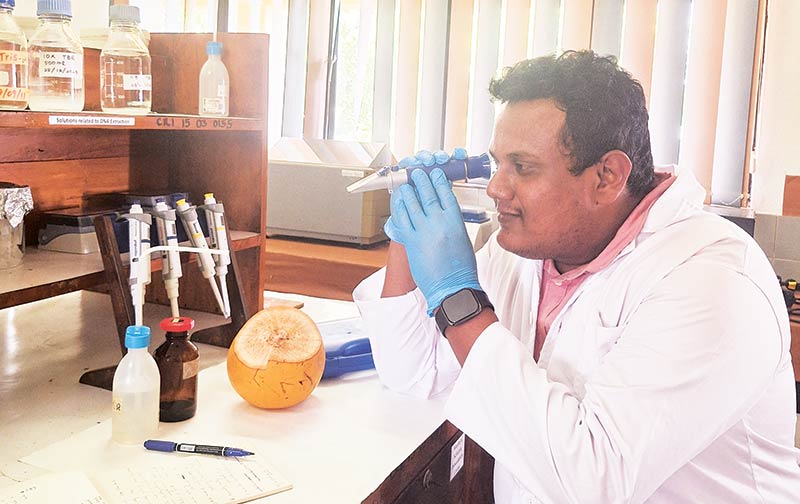
Characterized by its golden exterior, Sri Lankan King coconut or thambili is endemic to the island. In a bid to tap a premium global niche market for this golden nut which traditionally equaled the modern-day saline, the Coconut Research Institute has embarked on ambitious research which is promised to be a ticket in obtaining Geographical Indication (GI) Certification for the much-loved thirst quencher.
BY RANDIMA ATTYGALLE
Traditionally in Sri Lanka, a guest is welcomed with a tall glass of refreshing thambili water. A popular pre-lunch drink, thambili translating to ‘king coconut’ befits this golden-hued nut endemic to Sri Lanka. Thambili is an integral part of many Lankan lives. From being an organic thirst-quencher to a notable base of ayurvedic medicines, this king of nuts even occupies the pride of place in religious and cultural landscape of the island.
Bunches of thambili are often used for decorative purposes at traditional cultural festivals. Naturally sterile, thambili water had been a trusted antidote of native physicians since time immemorial. A traditional substitute for modern day life-saving saline, a bottle of thambili water or even a bunch of thambili was often taken by locals when visiting a recovering patient. Its jelly-like kernel commonly called londha is another edible delight.
Endemic variety
“In many coconut-growing countries, there are primarily two types of coconut palms: Tall and dwarf. Only a few countries have recorded intermediate types, and Sri Lanka has one such variety called Aurantiaca, which means orange coloured in Latin. Within this variety, there are four types of coconut, including king coconut – Nawasi Thambili, Rathran Thambili, and Bothal Thambili. King Coconut is considered endemic to Sri Lanka. Although populations with a similar appearance have been recorded in other countries, they belong to the red dwarf variety. Only Sri Lanka has a well-distributed population of king coconut,” says Dr. Auchithya Dissanyaka, Head of the Genetics Implant Division of the Coconut Research Institute of Sri Lanka (CRI).
GI for a premium price
In a backdrop where the demand for thambili or Sri Lankan king coconut in the international market is on the rise, the CRI is now in the process of differentiating the other dwarf varieties from the Sri Lankan king coconut. The effort is perceived to be a gateway in obtaining the Geographical Indication (GI) certification for our thambili.
GI is an international labeling system that identifies a product originating from a specific geographical area. It recognizes qualities, characteristics, or the product’s reputation that are importantly linked or attributable to its location. GI-certified products which have the international protection are also at an advantage of fetching a premium price over non-GI competitos. Sri Lanka obtained its first-ever GI certification in 2022 for ‘Ceylon Cinnamon’ from the European Union.
Booming beverage industry
Our king coconut is mainly exported as whole nuts and bottled/canned coconut water. From only 2.96 million nuts in 2014, local king coconut exports have risen to 12.91 million nuts as of 2023. The natural beverage industry is also booming in the international market, creating a high potential for the coconut water industry to become a high-value export industry. In 2022, the coconut water market was worth USD 5.2 billion, and it is estimated to increase to USD 20.24 billion by 2030 (zionmarketresearch.com).
“While other coconut water exporting countries use water from either tall or dwarf varieties, Sri Lanka has a unique opportunity to compete in the international market with its indigenous king coconut variety which is of intermediate type. Brazilian Green Dwarfs and Aromatic Green Dwarfs from Thailand are two main coconut varieties in the beverage coconut industry. To successfully compete in the international market, it is crucial to distinguish king coconut from other varieties in the global market,” remarks Dr. Dissanayaka.
The scientists at the CRI are presently conducting molecular and biochemical studies for this purpose, she says. They are also in the process of collecting king coconut germplasm to establish a gene bank to conserve the genetic material of king coconut. “We are selecting best mother palms across the country to go for island-wide characterization and we are almost nearing completion. Following that, we are moving into specific characterization which will differentiate our king coconut from other varieties,” explains the scientist. The project is supported by connected institutions of the CRI including the Coconut Development Board and the Coconut Cultivation Board.
Ongoing research
In addition to the Morphological and Molecular diversity related researches on germplasm conservation which will generate information required to obtain GI, CRI’s king coconut research branches out to several other areas. “We are also carrying out nursery experiments to enhance effective seedling production, floral biology related researches to enhance the breeding programmes and mother palm collection to produce seedlings with good genetic potential,” explains Research Officer, Genetics and Plant Breeding Division of the CRI, Oshan Thilakarathne.
Sri Lankan king coconut is still largely confined to home gardens although several plantation companies have now come forward to expand the cultivation to plantation level. “The fact that our nuts are largely sourced from home gardens also render it to be fully organic – a factor which enables us to maintain a niche in the international market,” says Thilakarathne who goes onto cite its health properties. “It is a natural beverage high in minerals and is ideal as a sports drink today. In Ayurveda, king coconut water is used to treat renal and urinary tract related diseases.” King coconut water is also considered a dietary antioxidant.
Growing export market
Sri Lanka’s king coconut export market is growing and the possible GI Certification could take it to the next level, says CRI’s Senior Research Officer Nilmini Jayalath. “Ever since we started exporting from around 2010, our king coconut export volume has grown bigger and last year we exported 12.9 million nuts. Our leading buyers are the Middle Eastern countries, Singapore, Maldives, Japan, France, Switzerland, and Germany.” Although king coconut water is exported in value added forms such as in sachets, bottles and in cubes, the demand for ours as whole nuts is much bigger because in the international market, the demand for the natural form is intense,” says the Senior Research Officer.
The scarcity of nuts is one of the major challenges to reach the full potential of our king coconut exports remarks Jayalath. “Local consumption alone demands increased volumes and during the last dry season the nut price went up to Rs 200-250 in the local market. Therefore, to increase the availability of nuts, the Coconut Cultivation Board has initiated many schemes including king coconut villages,” notes the scientist.
Harnessing new technology
In addition to the king coconut characterization studies, the comprehensive research programme on king coconut includes the development of tissue culture technology, and strategies to mitigate the seasonality of production. “By addressing these aspects, CRI aims to not only boost yields but also ensure that the industry can meet growing consumer demand year-round,” says Dr. Nayanie Aratchige, Acting Director of the CRI.
The CRI has developed technology to increase the shelf life of young king coconuts, aiming at enhancing the export potential. The new technology developed by the CRI encompasses the largely untapped potential of king coconut trade due to challenges in preservation and transportation, offering solutions that enhance the shelf life and quality of nuts. “Preserving the freshness and nutritional value of king coconut during transit enables tapping distant markets without compromising quality. Producers and exporters can access further information and learn about our trainings by calling the CRI on the short code 1928,” Dr. Aratchige concludes.
(Pic credit- Coconut Research Institute, Wikipedia)
Life style
Stolen from the wild: Confronting the crisis of illegal wildlife trade and biopiracy

Nations Trust WNPS Monthly Lecture
By Samantha Gunasekara & Hasantha Kaushalya
Thursday, November 21, 6 pm, Lotus Hall, BMICH
The Wildlife and Nature Protection Society (WNPS) is committed to driving awareness and action on critical conservation issues. Through its monthly lecture series, WNPS brings to the forefront the often-overlooked crisis of illegal wildlife trade (IWT) and biopiracy—issues that threaten not only Sri Lanka’s biodiversity but the global ecological balance. The November edition of Nations Trust WNPS lecture aims to shed light on the dark underworld of wildlife trafficking, expose legal gaps, and highlight the need for collective action to protect natural heritage.
Illegal wildlife trade is a high-stakes, clandestine operation that generates up to $23 billion annually, fueled by complex networks that exploit animals, plants, and entire ecosystems. Despite global regulatory efforts like CITES, the trade continues to grow in sophistication, often outpacing enforcement. Sri Lanka’s unique wildlife, including endangered species like pangolins and star tortoises, is particularly vulnerable to collection, poaching and trafficking, with devastating impacts on ecosystems and biodiversity.
Illegal wildlife trade devastates biodiversity, but biopiracy—exploiting resources through patents—adds a serious, emerging threat. The shift toward Digital Sequence Information enables entire genomes of Sri Lanka’s unique species to be exploited, often without consent or awareness.
This month’s lecture presents a unique opportunity for the public and stakeholders to confront these alarming trends and to understand the role they can play in dismantling the networks that fuel IWT. WNPS invites all who care about wildlife conservation to join this critical session and take a stand against the exploitation of Sri Lanka’s natural resources.
This lecture features two of Sri Lanka’s leading experts on IWT:
Samantha Gunasekara
Samantha Gunasekara, former Deputy Director of Customs, is a leader in wildlife protection, credited with establishing World’s first customs Biodiversity protection cell and has over 30 years in wildlife crime detection and anti-corruption in wildlife crimes. He has led significant efforts in wildlife crime detection, initiated the Sri Lanka Customs Museum, and contributed to national conservation efforts. Recognized with the Presidential Environmental Award, he serves on multiple biodiversity committees and is a sought-after lecturer in conservation.
Hasantha Kaushalya
Hasantha Kaushalya is a prominent figure in counter-wildlife trafficking with over 15 years of experience at Sri Lanka Customs. As a World Customs Organization (WCO) accredited expert on Illegal Wildlife Trade (IWT), he has led technical missions and training workshops for Customs authorities across Asia and Africa. Known for his expertise in detecting and investigating cross-border wildlife crimes in Sri Lanka, Hasantha has also developed a comprehensive training program to strengthen wildlife trafficking enforcement within Customs. His achievements have earned him the 2023 WCO Certificate of Merit for knowledge-sharing and the Wildlife Law Enforcement Excellence Award from the Sri Lanka Wildlife Enforcement Network (SLaWEN)..
The lecture is supported by Nations Trust Bank and is open to both members and non members. Entrance Free.
Life style
Jetwing Hotels wins the Global Responsible Tourism Award
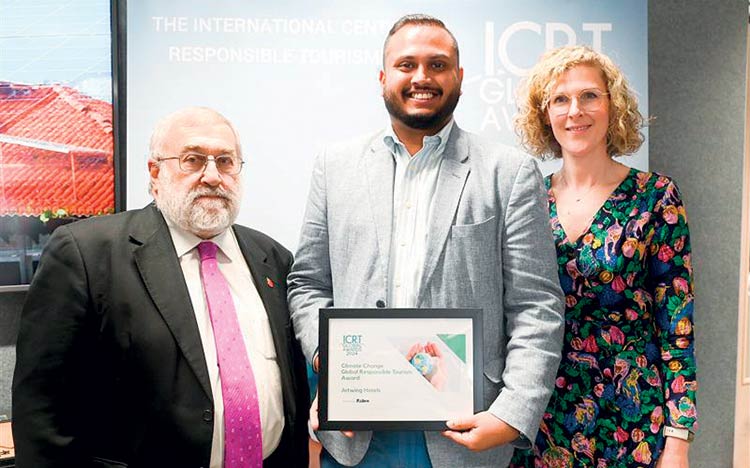
Jetwing Hotels was recently recognized for its contribution to climate action at the recently concluded Global Responsible Tourism Awards 2024, sponsored by Sabre, held in London.
The Global Responsible Tourism Awards has honored six exceptional tourism operators across various categories. These winners, hailing from Africa, Latin America, the Indian subcontinent, Southeast Asia, and the rest of the world, previously secured gold medals in their respective regional competitions. The 33 regional gold winners then advanced to the global stage, vying for recognition in the 20th anniversary year of the awards.
Harold Goodwin, founder of the International Centre for Responsible Tourism, emphasized the importance of concrete action in sustainable tourism. He stated, “Too often, ‘sustainable’ is used abstractly. Responsible Tourism demands tangible actions to improve tourism and transparent reporting of achievements. Today’s award winners exemplify these principles, offering evidence-based, replicable, and innovative approaches that inspire and influence others.”
Tess Longfield, Sabre’s head of sustainability communications and award sponsor, echoed this sentiment, expressing admiration for the finalists’ dedication to sustainable and equitable tourism. She added, “Their passion and commitment to creating a positive impact through travel is truly inspiring. It underscores the power of responsible tourism to make a real difference.”
The judges in the climate action category sought organizations actively decarbonizing tourism operations and pioneering innovative strategies for climate resilience and business continuity. Since introducing its first solar PV system in 2010, Jetwing Hotels has steadily expanded its renewable energy footprint, investing over USD 1 million in 2024 to increase capacity by 1.6 MW. In 2023 alone, Jetwing Hotels generated 1,069 MWh of clean energy, powering 13,490 households and offsetting 608 metric tons of CO2 emissions. The ongoing expansion, currently 90% complete, will further bolster solar PV capacity, tripling its contribution to 24% of total electricity consumption. Beyond solar power, Jetwing Hotels has adopted a holistic approach, incorporating biomass boilers, steam-powered chillers, solar thermal systems, and biogas digesters to achieve over 60% of its energy demand from renewable sources. These efforts further align with Sri Lanka’s renewable energy goals and demonstrate Jetwing Hotels’ dedication to a sustainable future.
Dmitri Cooray, Managing Director of Jetwing Hotels, accepted the award in London, stating, “By advancing energy independence and fostering a culture of environmental responsibility among our staff and guests, we ensure our business practices are both environmentally sound and economically sustainable. Our success demonstrates that even small steps can create a significant impact, inspiring others to take action.” With a legacy spanning over half a century in the tourism industry, Jetwing Hotels has established itself as a pioneer in curating unique experiences and offering legendary Sri Lankan hospitality. As a family-owned brand, Jetwing continues to be a leading advocate for sustainability and responsible tourism, guided by a comprehensive strategy focused on community upliftment, climate action, environment conservation, and resource efficiency. The brand’s diverse portfolio includes a range of luxury hotels and villas, each offering a unique perspective on Sri Lanka’s rich cultural heritage and natural beauty.
-
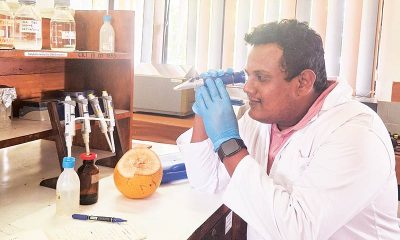
 Life style6 days ago
Life style6 days agoKing of coconuts heads for a golden future
-
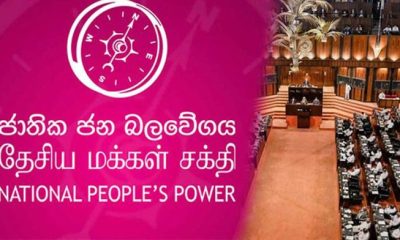
 News5 days ago
News5 days agoNPP appoints two defeated candidates as NL MPs
-

 News7 days ago
News7 days agoPresident warns his party: “We will fail if we view power as an entitlement to do as we please”
-

 News4 days ago
News4 days ago‘Gas Cylinder’ explodes; Ranil flays NDF Secy. for submitting Ravi’s name
-

 Midweek Review3 days ago
Midweek Review3 days ago‘Ramayanizing’ Sri Lanka by Courtesy of SriLankan Airlines
-

 Sports4 days ago
Sports4 days agoMaking batting compulsory for bowlers has worked – Theekshana
-

 Editorial7 days ago
Editorial7 days ago‘Maroon Wave’ and AKD Magic
-

 Editorial6 days ago
Editorial6 days ago‘Twas a great victory


